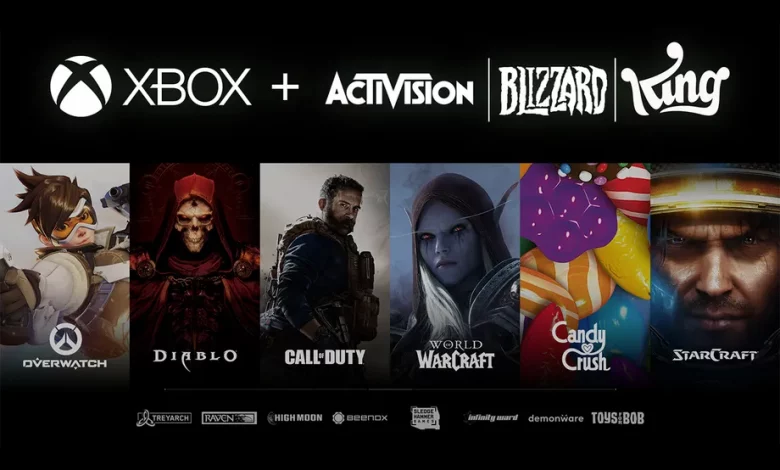
Is Microsoft’s purchase of Activision an example of pay to win for Xbox?
Back in the late ’90s and early ’00s, during Blizzard’s (arguable) creative peak, I was as big of a fanboy as you could possibly hope to meet. With the benefit of hindsight, I do regret wasting so many formative years on Battle.net, first with StarCraft and then Diablo 2 and WarCraft 3. Those rich fantasy worlds were easy to lose yourself in, and lose myself I did, for better or worse. However, recent events have soured my opinion of them considerably. So it’s no surprise that Microsoft’s purchase of Activision, along with Blizzard, has my head spinning.
I also have an equal and enduring affection for Xbox. Microsoft’s first console is perhaps my favorite of all time because it offered a very PC-like experience at a time when consoles typically didn’t. I might have been absent from the ecosystem for most of the last generation, but PC Game Pass served as the gateway drug that slowly reeled me back in. Now the proud owner of a Series X, it feels like I never left.
Oh, and Call of Duty is ok in small doses.

What does this mean for the future of gaming?
All this considered, you’d perhaps think I’d be jumping for joy that one of my favorite legacy developers is joining forces with my console maker (or service provider) of choice in such a massive, industry-shaking way. But, no.
I am deeply concerned about what this means for video games going forward. I don’t like how much power this gives Microsoft, and I don’t like the position it puts Sony in.
The general consensus is that Sony doesn’t have the financial resources to compete with Microsoft if the next few years turn into a massive industry fire sale. I would agree that’s a fair assessment. But more to the point, and to put it bluntly, it’s pretty galling to watch Sony have their carefully curated clutch of supremely talented studios increasingly rendered moot by Microsoft’s impossibly thick checkbook. After this announcement and what it means for Game Pass, whatever Project Spartacus turns out to be will inevitably suffer by comparison.

What does this mean for Sony and Nintendo?
And if not Sony, who else could compete with Microsoft? The first name that springs to mind is Tencent, who have themselves made some sizable gaming-related investments in recent years. Their intentions seem benign and platform agnostic so far, but if the industry does suddenly take an aggressive, predatory turn they could bring their own considerable resources to bear with consequences unknown.
The ironic twist here is that Microsoft was once criticized for their proposed draconian DRM system when the Xbox One was revealed. A cynic might say that, with Game Pass, they’re achieving their goal of undermining ownership through the back door. I like Game Pass, and it makes sense for me because I rarely replay anything these days. Do I want it to be the only thing that matters? God, no.
Nintendo, at least, will come out of this relatively unscathed. They trade largely on their own wholly owned IP, and are consistent in their ability to release top quality software. Nothing in Activision’s roster is going to make any difference to the colossal amount of Switches Nintendo sells. Nor will it impact the inevitable biblical clamor for the Switch’s successor. Moreover, they seem more inclined towards cooperation with Microsoft these days anyway.

Assessing the Microsoft, Activision and Blizzard fallout
The elephant in the room is, of course, the ongoing controversy regarding Activision and Blizzard’s internal problems. Sexual harrassment, bullying and all the awful behavior that goes along with it are inexcusable in any context, and the stain caused by everything that’s happened is never going to wash out completely. How does Microsoft plan to deal with that?
The long-term implications of all this are as yet unwritten, but let’s play devil’s advocate for a second. Firstly, Call of Duty may come to Game Pass day one, and it may have content exclusive to the Xbox ecosystem, but I think if any franchise at all will remain multiplatform, Call of Duty is it. Ergo, Warzone is also almost certainly locked in for continued multiplatform support. Secondly, World of WarCraft’s existing subscription fees make it too valuable to roll into Game Pass, even if everything else is.
Finally, and more ominously, I think a new era of mergers and acquisitions is only just getting started.

